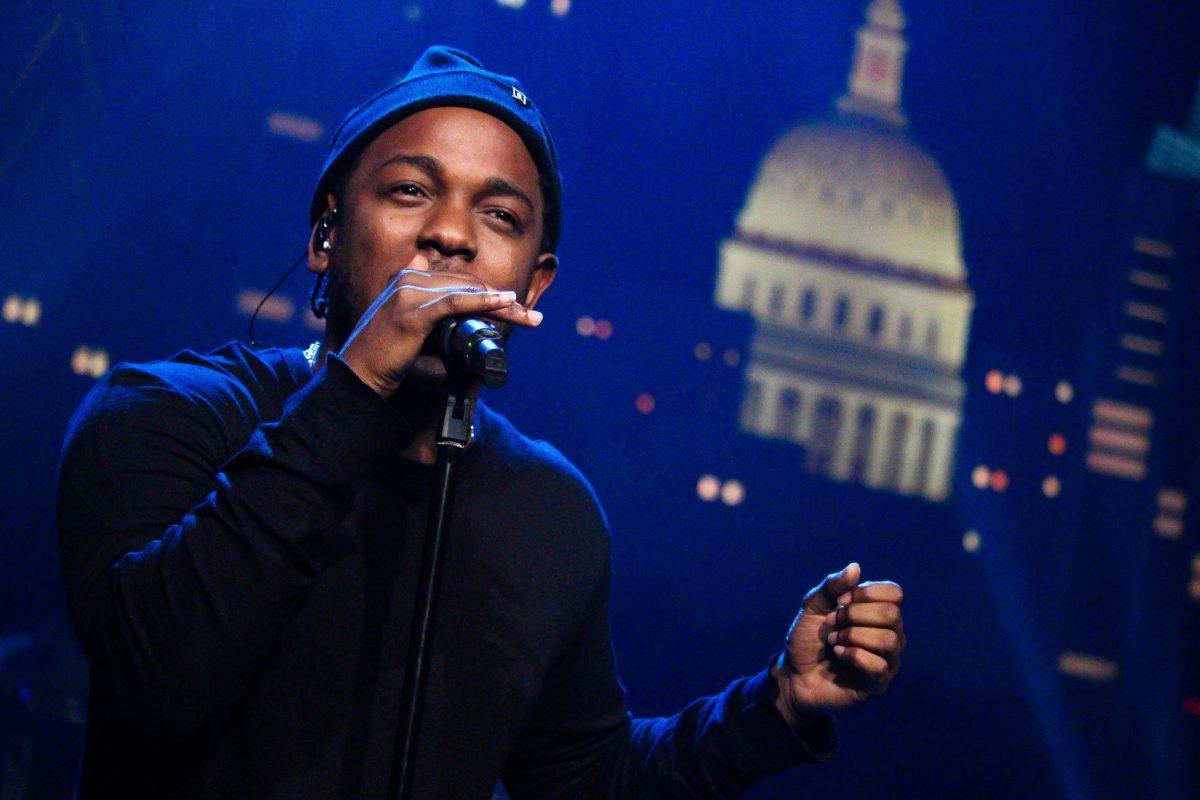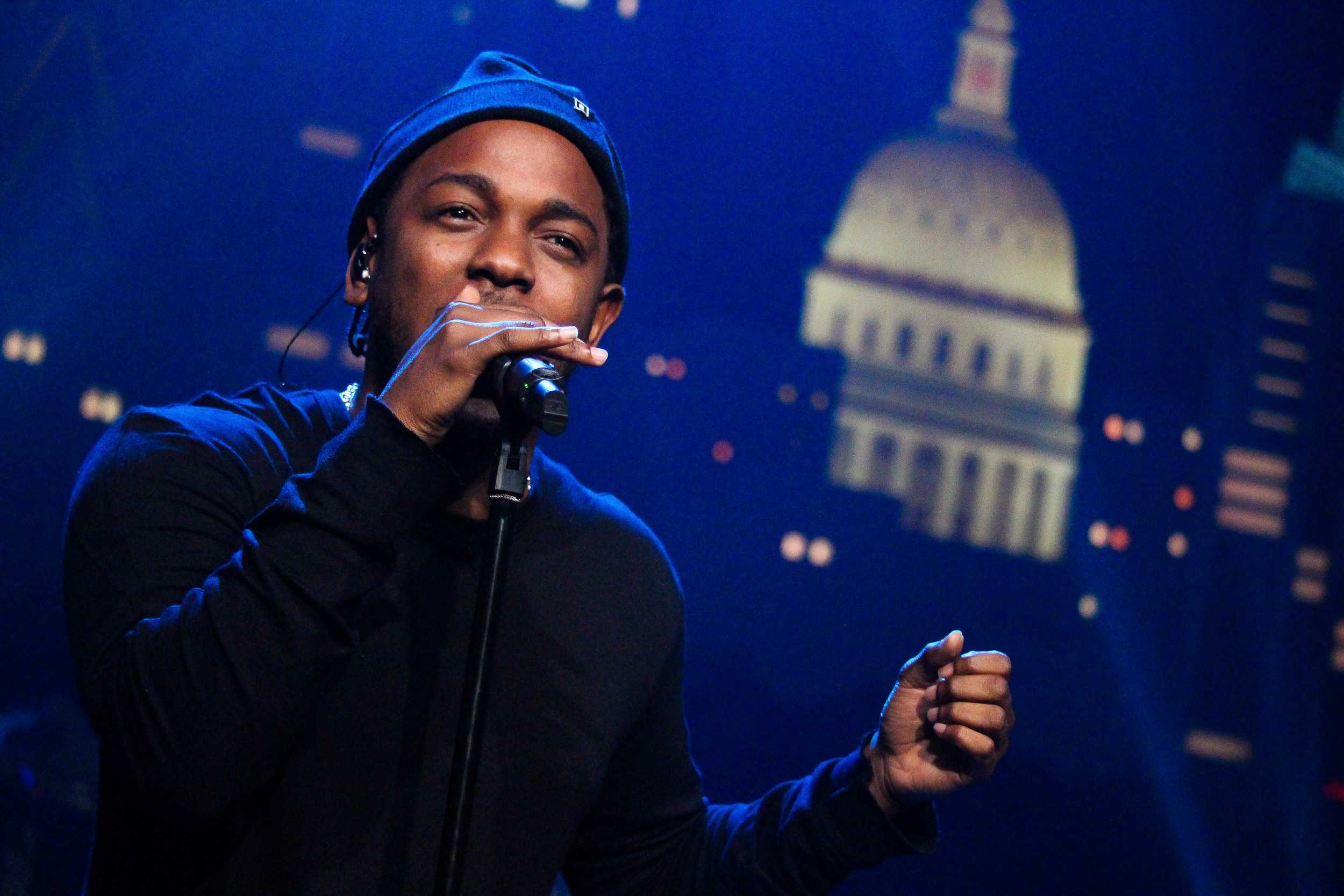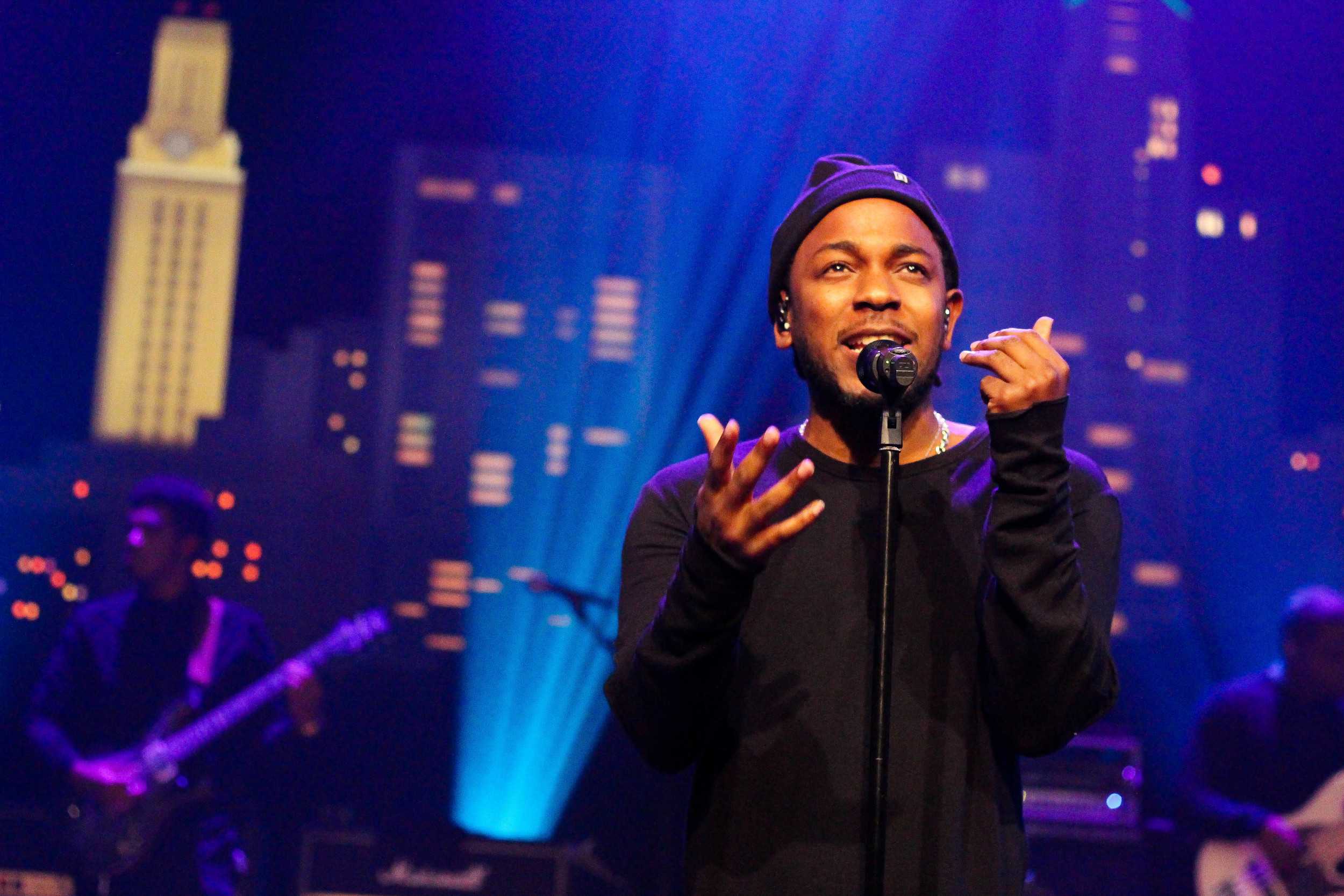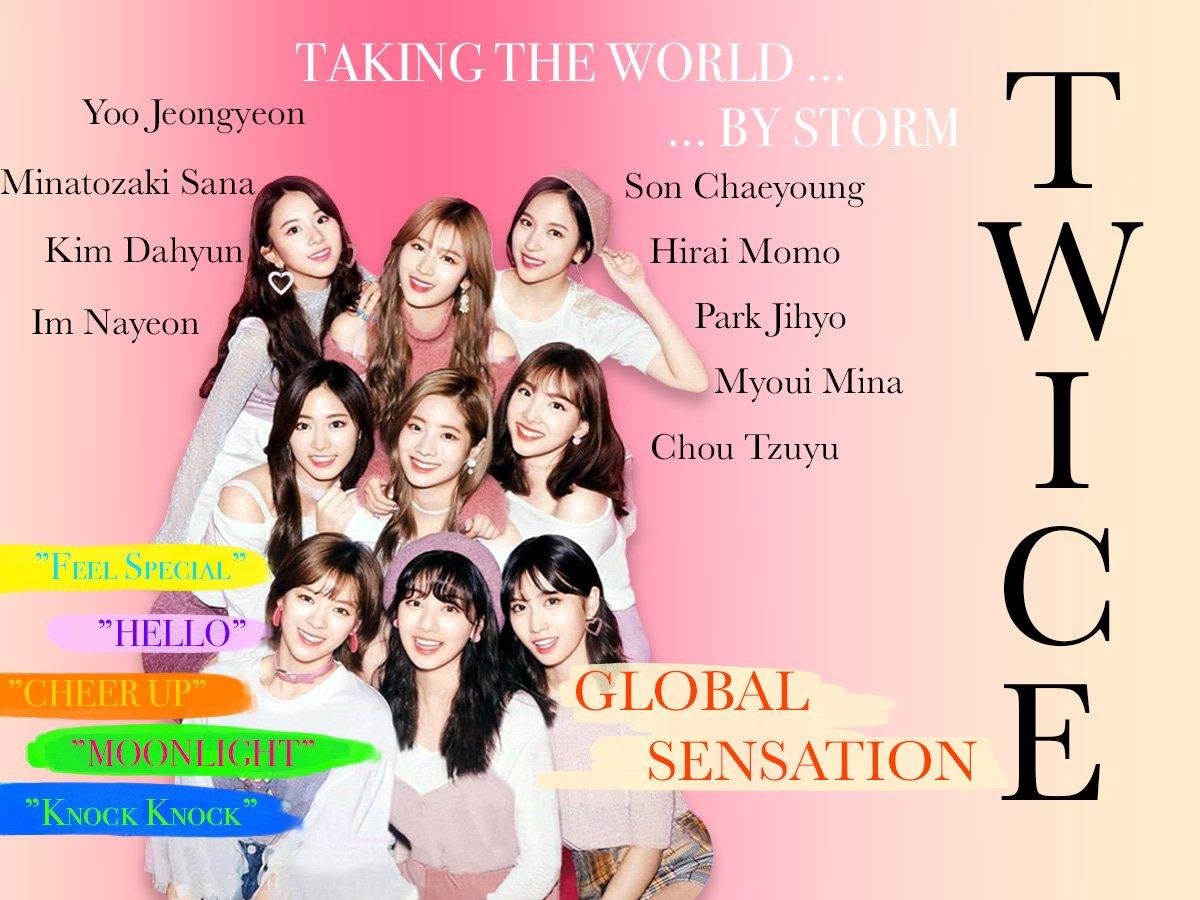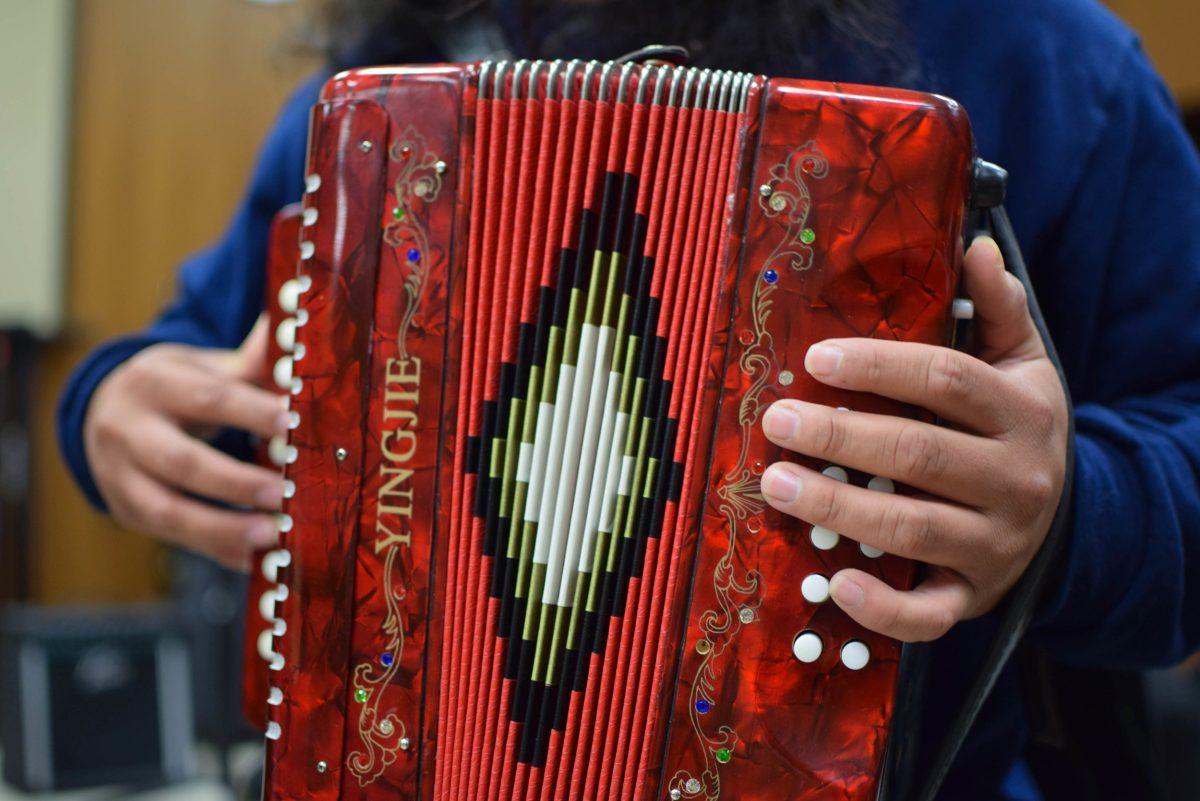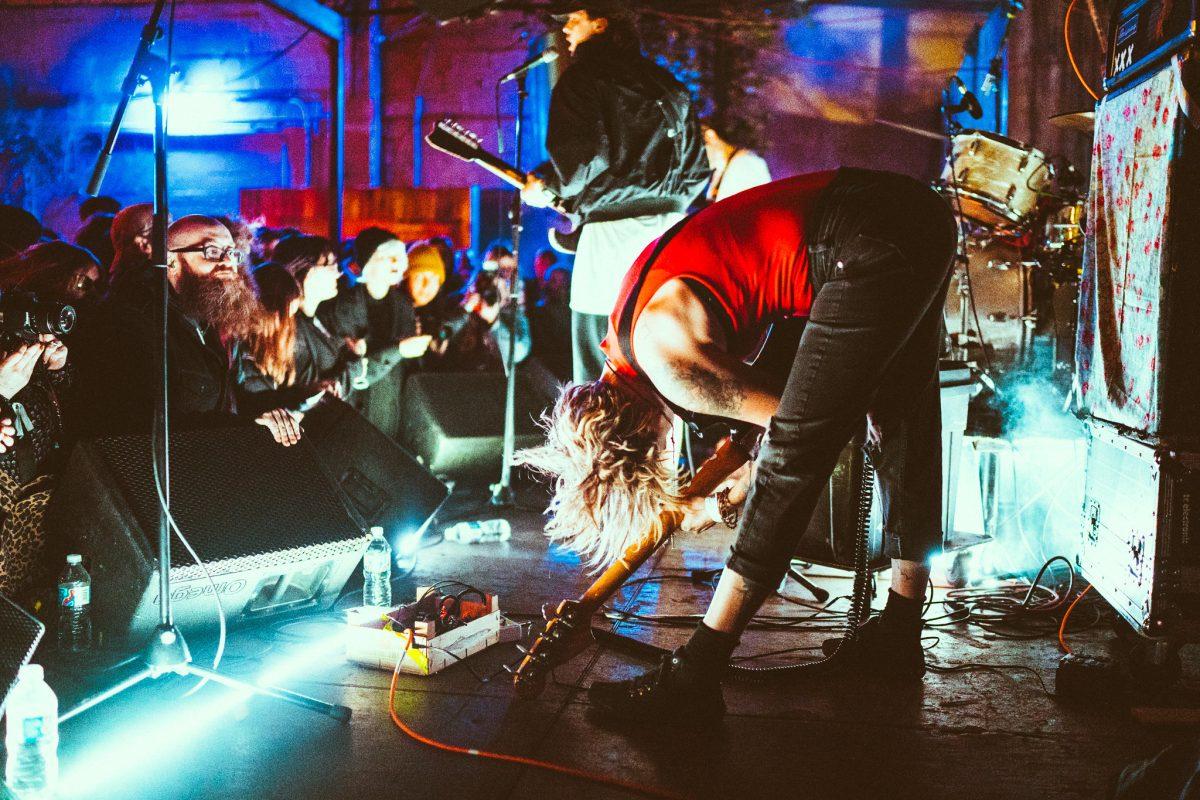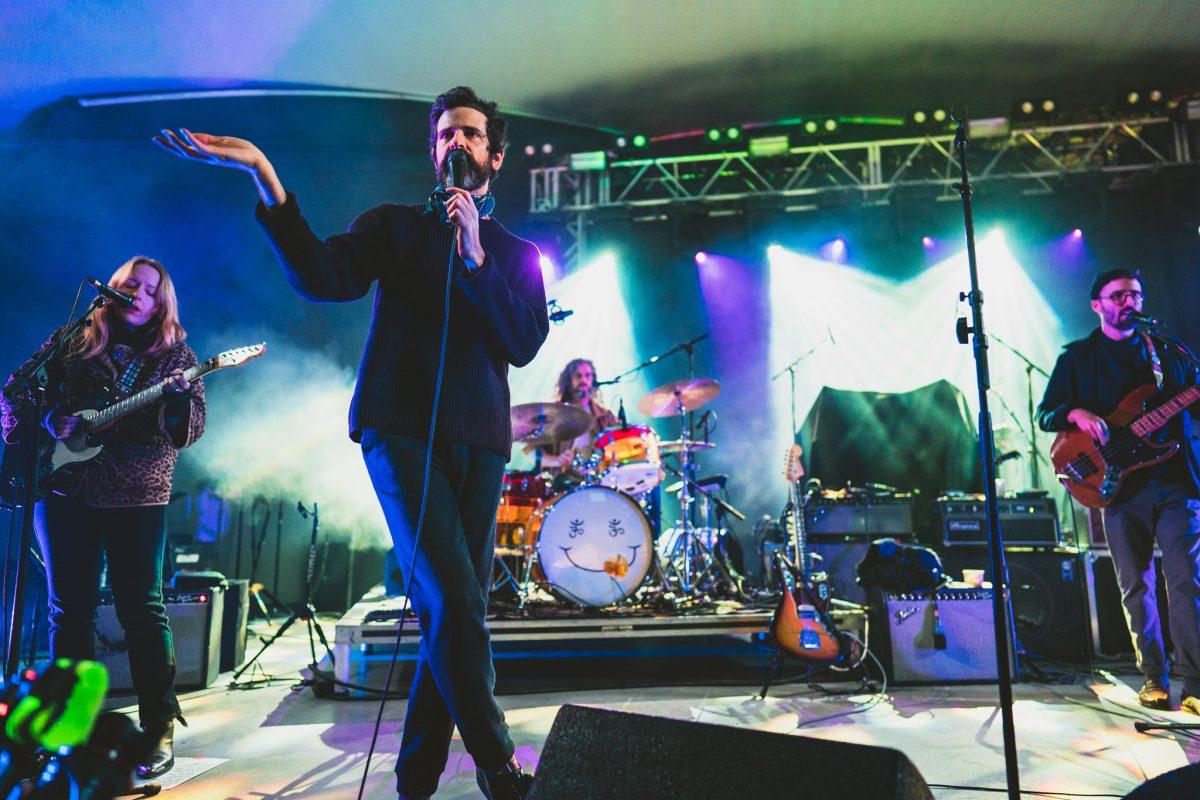Story and photos by Bryan Rolli
“Listen to the words!”
Kendrick Lamar’s plea rang out during his Austin City Limits performance at the Moody Theater on Friday Oct. 30, punctuating the chorus to “Complexion (A Zulu Love),” in which the rapper proclaims, “Complexion don’t mean a thing/it all feels the same.”
In terms of pure entertainment, Lamar’s set was a resounding success from start to finish. But it also functioned on a deeper level. For 90 minutes, the 28-year-old rapper from Compton united listeners from all walks of life, as they sang and danced along regardless of age or color. It was an active — albeit small — step toward ending hate, and maybe if more artists performed with the same conviction, then perhaps we could live in a world where “complexion don’t mean a thing.”
Lamar, dressed in all black, took the stage shortly after 8 p.m. to rapturous applause, opening his set with the scat-jazz freak-out “For Free?” From a technical perspective, it’s a massive undertaking, as Lamar fires off lines that owe more to free-verse poetry than conventional rap. He crooned, cringed and yelled while his band vamped behind him, toeing the line between order and chaos. Lamar handled the tongue-twister verses with ease, gesturing to every quadrant of the theater and smirking with the confidence of a king who knows he has complete command of his subjects.
Lamar exuded that confidence all night as he tore through a medley of songs off his newest album, “To Pimp a Butterfly,” as well as 2012’s “good kid, m.A.A.d city.” A lot has changed in three years: despite a few instantly catchy singles, “Butterfly” is conspicuously absent of hype tracks such as “Bitch, Don’t Kill My Vibe” and “Swimming Pools (Drank)” that made “good kid” such a knockout, instead favoring a more contemplative hybrid of jazz, funk, blues and hip-hop. But the songs blended together seamlessly, thanks in equal part to Lamar’s spirited delivery and his extraordinary backup band, who substantially electrified the entire set and breathed new life into each song.
And yes, this was a band in every sense of the word. Lamar gave shout-outs to each of the four black-clad musicians with whom he shared the stage, allowing them to fire off solos — his guitarist in particular worked the crowd into mass hysteria with a solo that would’ve been right at home on Michael Jackson’s “Beat It.” They stopped and started on a dime, alternating between slow funk grooves and monstrous rock beats with effortless precision, suggesting hundreds of hours of practice.
But just like every orchestra has a conductor, this band had its fearless leader in Lamar, who completely immersed himself in the music and allowed it to possess his every move. He rarely abandoned his perch at front-and-center stage for the first half of the set, moving robotically behind the microphone stand as if being batted directionless by waves in the ocean. Rhythmically, he was perfectly in sync with the band, shooting his hands into the air at every cymbal crash and darting them to the front and sides to elicit a response from every part of the audience.
Lamar loosened up considerably during the second half of his set, driving home the message behind each song. His raps boiled with vitriol on “The Blacker the Berry,” arguably his heaviest song and most aggressively anti-racist statement. Lamar crouched down at the back of the stage and locked eyes with his bassist during the ominous pre-chorus: “The blacker the berry, the sweeter the juice/The blacker the berry, the bigger I shoot.” The volume swelled and the band exploded into the chorus as Lamar jumped across the stage, while the crowd danced as if they had reached nirvana.
For the most part, the set was more jubilant than confrontational, with Lamar living up to his promise that “We’re gonna make this a party tonight!” There wasn’t a still body to be found when he broke into the funky “i,” which owes more to classic soul bands like Earth, Wind & Fire than any hip-hop act of the past two decades. Meanwhile, Lamar officially declared his ascension to the throne on “King Kunta,” and the audience was more than happy to hand him the crown. The band dropped out as Lamar launched into the third verse: “I was gonna kill a couple rappers but they did it to themselves.” It all became clear — here was a man who, in his own words, had gone “from a peasant to a prince to a motherfuckin’ king.”
The crowd launched into a chant of “We gon’ be alright,” introducing Lamar’s final song for him. The rapper took the energy and ran with it: “Louder!” he shouted in every direction without the help of a microphone. After controlling the volume of the chant for several minutes by raising and lowering his hands, Lamar finally broke into “Alright,” counting into the chorus and demanding the audience to move with him. The song was exuberant and hopeful, and Lamar left the Moody Theater with his most enduring message: “If God got us, then we gon’ be alright.”
On the set lists hanging from the video cameras, there was one song listed beneath “Alright,” along with the note, “pending K.Dot’s approval.” But Lamar never returned to the stage. There was nothing left to say.































